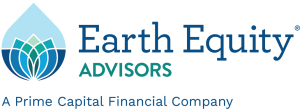On the Importance of Responsible Business
After formally entering the field of socially and environmentally responsible investing in the past year, I am intrigued as I observe the volume and variety of discussion in the media directly and indirectly relating to this topic. After a 25+ year career in corporate finance, and while engaged in a second career in coaching and psychology, I learned about the triple bottom line philosophy. These concepts really resonated with me, however seven or eight years ago, when I described the idea of looking at companies though a lens that included not just making a profit, but considering how they treated people and the earth’s resources, I was laughed out of the room of some finance discussions. Looking back, I can appreciate the traditional finance person’s concerns that if it is not measurable in dollars, it is not part of the business decision equation. My intuition told me that this information should be considered in evaluating companies for investment, however other than my passion for the concepts, it was hard to get any traction on the idea since I could not frame it in numbers.
One of the first structures I learned about that built metrics to gauge triple bottom line behavior was B Corporation—this group of now 1000+ companies have gone through a rigorous evaluation process to be certified as a B Corp. They are using the power of business are a force for good, focusing on transparency, accountability, and performance to redefine what business success means. It is a philosophy that is catching on, as these companies attract and retain great employees, have strong customer and supplier relationships, and exhibit conscientiousness to use only their fair share of resources. Many of the fastest growing companies in the US are in this category. Investors and venture capital firms are starting to take note that companies with this behavior are thriving.
The primary media concepts that are supporting this transition in philosophy are coming out of a number of the faith communities. The Pope’s bold statements supporting socially and environmentally responsible behavior, particularly placing climate change at the forefront of his comments, combined with position statements from a group of Jewish Rabbis, the United Church of Christ and various foundations seeking fossil fuel free investments all point to a change in attitude.
To support this transition, there are now metrics that can help investors determine what is in their portfolio currently, and also help guide ways to put money in investments that align with belief systems. There are far more measurement tools, screening programs, and historical performance data to support these decisions than even five years ago.
It is exciting to see the momentum building—while still considered a niche area of investing (about one in every eight dollars today is invested this way), more people and organizations are exhibiting curiosity and seeking information to help them align their investments with their values.

Leesa Sluder is an Investment Advisor with Krull & Company









